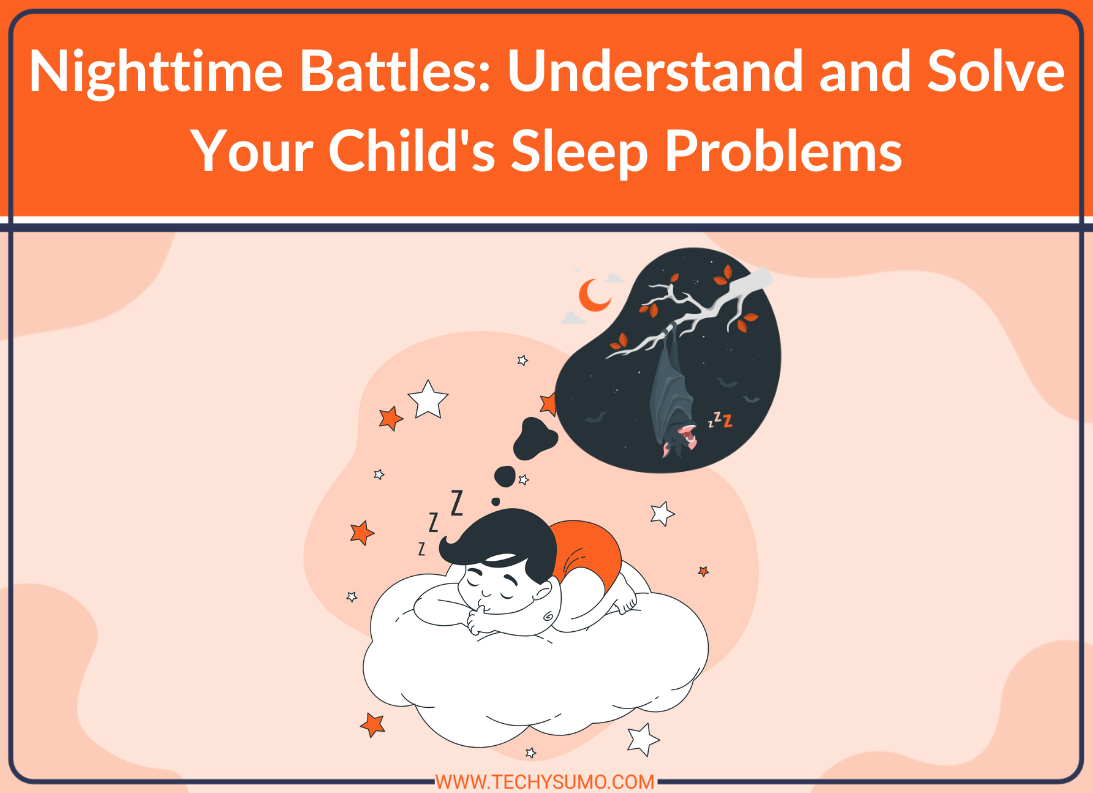Children’s sleep can be frustrating for parents when bedtime becomes a nightly battleground. However, by understanding the causes of common child sleep problems, parents and foster carers can take steps to help their child sleep better.
Table of Contents
Normal Sleep Patterns
It’s important to have realistic expectations about normal sleep at different ages. Newborns and infants have immature sleep cycles and need to feed often. By 6 months, babies start sleeping for longer stretches but still wake multiple times a night. Most 1-year-olds take two naps per day and sleep 11-14 hours at night with one or two wakings. Around age 2, naptimes start decreasing, and nighttime sleep consolidates.
Common Sleep Problems
Some common sleep issues seen in young children include:
Bedtime resistance
When the child fights or refuses going to bed. Underlying causes can include inconsistent bedtimes, anxiety, or trying to stall to get more parent interaction.
Night wakings
Waking and calling out during the night. This peaks around 1 year old. Contributing factors include sleep associations (like needing a parent present to fall back asleep), hunger, or nightmares/fears.
Also Read
Early morning wakings
When a child wakes very early, like 5 am, and won’t go back to sleep. This often coincides with dropping nap times.
Sleep anxiety and nightmares
Anxieties and bad dreams that interfere with sleep onset or cause night wakings. Stress, over-tiredness, and scary media exposure can trigger them.
Solutions and Sleep Hygiene Tips
Making changes to “sleep hygiene” often helps improve children’s sleep. Useful tactics include:
Consistent bedtime routine
Having the same sequence of quiet, calming activities before bed makes winding down easier.
Soothing sleep environment
Ensure the room is dark, cool and quiet. Some children sleep better with a comfort object like a soft toy or special blanket.
Reinforcing positive sleep associations
Make sure children fall asleep independently without needing to be rocked, fed, or held.
Setting technology limits
Restrict screen time for an hour before bed. The blue light from electronics can inhibit melatonin release.
Trying earlier bedtimes
Overtiredness causes night wakings. Moving bedtime 15 minutes earlier often helps.
Daytime exercise
Promoting active physical play during daytime hours helps children sleep more soundly at night.
When to Get Help
If sleep struggles persist despite these approaches, or the child snores loudly or gasps/stops breathing at night, talk to your health visitor or GP. Sleep disorders like sleep apnoea may require medical assessment. Additionally, if you foster children with an agency like Fostering People, they will be there to support you through sleep problems related to trauma and anxiety. With professional help, support and consistency from parents and carers, even the most resistant sleep problems can improve or resolve.
Consistency and Patience Are Key
When implementing solutions for children’s sleep troubles, it’s vital to be patient and stick to the plan consistently. Children thrive on routines and familiarity. It can take days or weeks for sleep-promoting changes to kick in. Being rigid with bedtimes, wake times, and pre-bed routines gives the best chance of success. While it’s frustrating dealing with exhausted, grumpy children and long nights, establishing healthy sleep in childhood paves the way for better rest for the whole family long-term.






